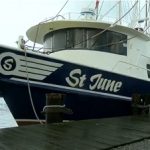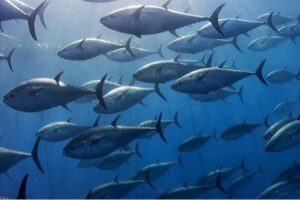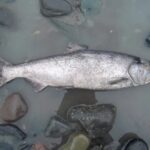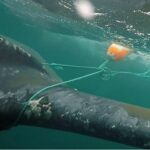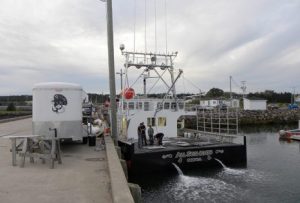Tag Archives: Vito Giacalone
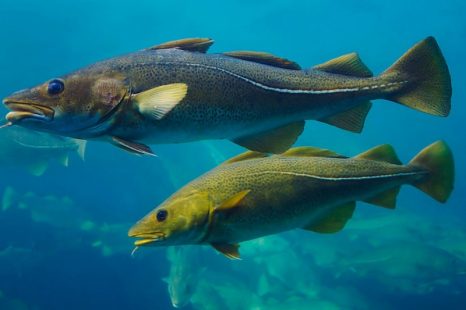
Fishermen not feeling the effects of ‘marked decrease’ in Atlantic cod population
What started as a research presentation on rising ocean temperatures and decreasing cod supply by NOAA quickly turned into a revealing conversation about how scientists and their data often do not reflect fishermen’s experiences. Findings by a working group of researchers indicated that the lifecycle of the species is being influenced by the environment, specifically rising ocean temperatures, which have changed the fish’s spawning behavior and their predator-prey relationships. Fishermen did question is whether these facts are having the same implications that the researchers believe. Al Cottone, a Gloucester fisherman, says he feels cod are in different areas, and that he has noticed a change in the tides, too. >click to read< 10:56
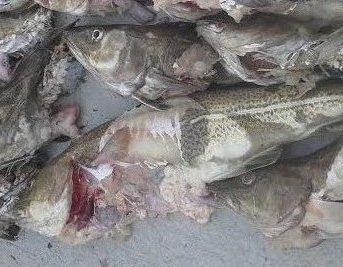
Can New England’s cod fishing industry survive? (How can the scientists and regulators ignore the ever increasing seal predation?!)
Gloucester, Massachusetts, grew up around cod. The waterfront teemed with boats and fishermen, heaps of fish thrashing in wire baskets. Boats were inherited from fathers and shipyards boasted of operating since 1684. As late as the 1980s, the cod were so abundant and large (30-50lb each) that the fishermen still brought in big hauls. Cod remains the state fish of Massachusetts., “We’ve been regulated out of existence,” former Gloucester fisherman Sam Sanfilippo said in 2017. “This used to be the biggest fishing community in the world. Ice companies, wharves, fish dealers, truckers, supermarkets … All through high school, I was always a fisherman. And here I am today: recycler, bike seller, furniture-maker. “I’m 50 years old and I don’t know what the hell I am.” >click to read< 07:30
Canada to ban ‘nuisance seals’ killing to keep access to U.S. market – Canada will abolish permits that allow the killing of “nuisance seals” by commercial fishermen and aquaculture in an effort to maintain access to the lucrative U.S. seafood market, Fishery management failure enacted for fish farmers >click to read<
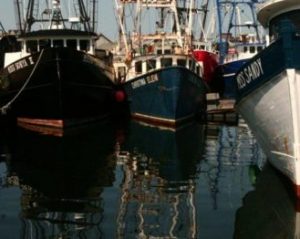
$63.5K to help reshape Gloucester’s fish industry
When the Gloucester Fishing Community Preservation Fund was established in 2007, the Gloucester fleet already had transitioned away from its sizeable offshore groundfish fleet to a largely inshore fleet dependent on cod and other groundfish species in the Gulf of Maine. More than a decade later, the demise of the Gloucester inshore fleet continues, fueled by regulation, environmental restrictions and the simple demographics of an aging and declining workforce. “The aging-out of the fleet and attrition have really taken a toll,” said Vito Giacalone, GFCPF executive director. “We’ve now experienced two generations of fishermen who saw no value in continuing to fish.” >click to read<09:55
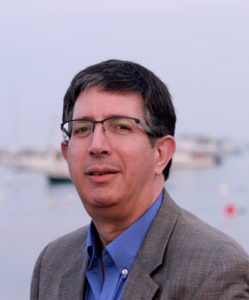
Hitting the Trail: NOAA’s GARFO leader looks to cultivate culture of collaboration
As debuts go, Mike Pentony’s first day on the job as the regional director for NOAA’s Greater Atlantic Regional Fisheries Office was a corker. The federal government marked his ascension on Jan. 22 as only the federal government can — shutting down all but the most essential government services as a consequence of the usual congressional mumbley-peg. “My first action was to come in and proceed with the orderly shutdown of government operations,” Pentony said recently during an interview in the corner office on the uppermost floor of GARFO headquarters in Gloucester’s Blackburn Industrial Park. The respite was short-lived. The shutdown lasted a day. >click to read< 23:52
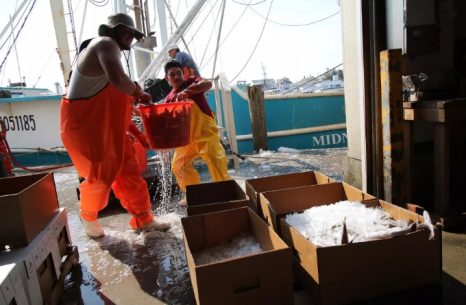
Something fishy in the quotas?
The clatter reverberated in the refrigerated cold as workers offloaded fish and wheeled full bins into a storage area on Fisherman’s Wharf. The catch was sorted, weighed, labeled, and eventually loaded onto large trucks headed for New York. It was a big haul, but not a big payday for Tom Testaverde Jr., captain of the Midnight Sun. “Our season’s been good. We caught a lot of fish, but the prices have been killing us all year,” Testaverde said. He pointed to imports that drive prices down, and regulations that limit what kinds of fish he can catch. Those federal limits on some species — particularly groundfish such as cod and flounder — are at odds with what commercial fishermen say they are seeing in the ocean. click here to read the story 14:34
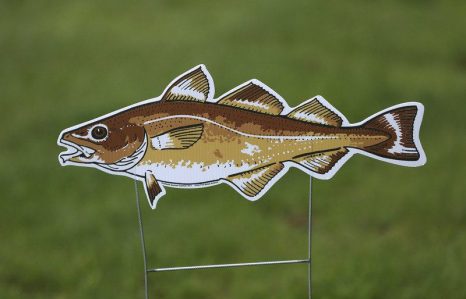
Northeast Seafood Coalition – Gov. Charlie Baker confirmed, attending annual fundraiser
When fishermen and supporters gather for the Northeast Seafood Coalition’s annual fundraiser Thursday night, they will be joined by one of their highest-profile backers. Gov. Charlie Baker has confirmed he will be on hand for the coalition’s gala, slated to begin at 6 p.m. at The Gloucester House restaurant. There, participants will raise money through ticket sales and a live auction to help the industry gain new inroads for developing effective science in tandem with federal and state regulators, all while sampling seafood caught in the previous 24 hours. “We see this event as the start of a push to obtain the science consultants and the help that we need,” said John Bell, the former Gloucester mayor who is a coalition co-founder and serves as head of its board of directors. (They may have a few tickets left!) click here to read the story 20:45
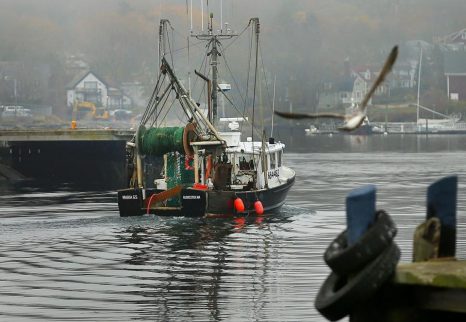
A milestone in the war over the true state of cod
For years, fishermen from Gloucester to New Bedford have accused the federal government of relying on faulty science to assess the health of the region’s cod population, a fundamental flaw that has greatly exaggerated its demise, they say, and led officials to wrongly ban nearly all fishing of the iconic species.The fishermen’s concerns resonated with Governor Charlie Baker, so last year he commissioned his own survey of the waters off New England, where cod were once so abundant that fishermen would say they could walk across the Atlantic on their backs. Now, in a milestone in the war over the true state of cod in the Gulf of Maine, Massachusetts scientists have reached the same dismal conclusion that their federal counterparts did: The region’s cod are at a historic low — about 80 percent less than the population from just a decade ago. continue reading the story here 08:07
ITS HUGE! Grey Sole limits nearly doubled as scientists use ’empirical approach’ to set new specifications
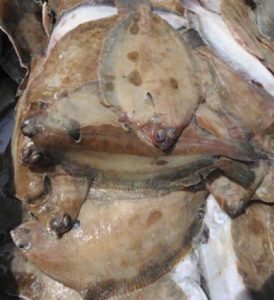 Meeting in Portsmouth, New Hampshire, the New England Fishery Management Council approved an acceptable biological catch of 878 metric tons of witch flounder, also known as grey sole, for 2017. When adjusted for management uncertainty, the move will result in a 2017 annual catch limit of 839 metric tons — nearly twice the 2016 annual catch limit of 441 metric tons. The unanimous vote by the council also underscored the escalating distrust commercial groundfishermen reserve for the science NOAA Fisheries uses to fuel its stock assessments. In December, NOAA Fisheries scientists were forced to concede that the model being used to develop the witch flounder stock assessment was irretrievably flawed after it failed the peer review phase of the process. Read the story here 07:51
Meeting in Portsmouth, New Hampshire, the New England Fishery Management Council approved an acceptable biological catch of 878 metric tons of witch flounder, also known as grey sole, for 2017. When adjusted for management uncertainty, the move will result in a 2017 annual catch limit of 839 metric tons — nearly twice the 2016 annual catch limit of 441 metric tons. The unanimous vote by the council also underscored the escalating distrust commercial groundfishermen reserve for the science NOAA Fisheries uses to fuel its stock assessments. In December, NOAA Fisheries scientists were forced to concede that the model being used to develop the witch flounder stock assessment was irretrievably flawed after it failed the peer review phase of the process. Read the story here 07:51
Savage quota cuts will finish off the New England small boat groundfish fishery
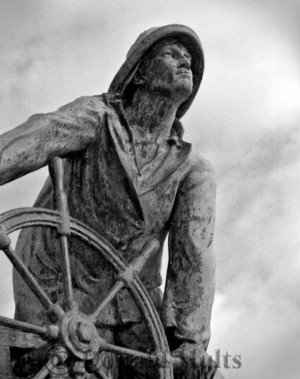 Fishermen and fishing stakeholders say the darkness that has descended on the Northeast groundfish fishery over the past three years is only going to grow deeper in 2016, with some fishing stakeholders envisioning the final collapse of the small-boat industry due to slashed quotas for species they believe are abundant. “We’ve never had a greater gap between what the fishermen are seeing on the water and what the scientists are saying,” Giacalone said. “Never.” Read the rest here, if you can stand it. 06:23
Fishermen and fishing stakeholders say the darkness that has descended on the Northeast groundfish fishery over the past three years is only going to grow deeper in 2016, with some fishing stakeholders envisioning the final collapse of the small-boat industry due to slashed quotas for species they believe are abundant. “We’ve never had a greater gap between what the fishermen are seeing on the water and what the scientists are saying,” Giacalone said. “Never.” Read the rest here, if you can stand it. 06:23
A fisherman’s doubt, and his love of the sea
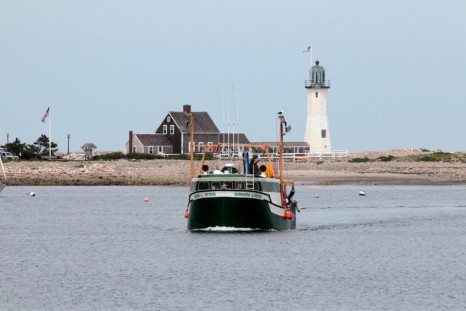 He is up before the dawn, and, a creature of steady habits, he heads for the seashore. It’s dark when Frank Mirarchi jumps into his black pickup truck, and dark still when he reaches Scituate Harbor. He parks on the town pier and stares at the ocean. But his 55-foot stern dragger is no longer moored there. Actually, the boat is there. But it’s no longer his. It was renamed last June after he sold it — a poignant punctuation point to Mirarchi’s half-century career as a commercial fisherman. Read the rest here 15:01
He is up before the dawn, and, a creature of steady habits, he heads for the seashore. It’s dark when Frank Mirarchi jumps into his black pickup truck, and dark still when he reaches Scituate Harbor. He parks on the town pier and stares at the ocean. But his 55-foot stern dragger is no longer moored there. Actually, the boat is there. But it’s no longer his. It was renamed last June after he sold it — a poignant punctuation point to Mirarchi’s half-century career as a commercial fisherman. Read the rest here 15:01
Gulf warming study based on bad science, stakeholders say
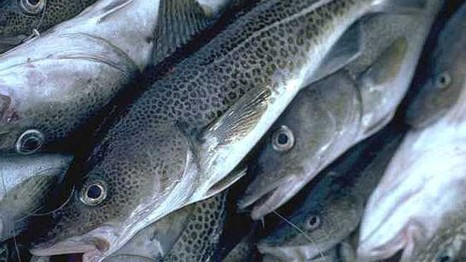 The study, performed by the Gulf of Maine Research Institute and appearing in the journal Science, concluded the Gulf of Maine’s surface water is warming more rapidly than 99.9 percent of the rest of the world’s oceans and that climate change is a contributing factor to the demise of the cod stock. “My first question was whether any part of the study started out to understand the true status of Gulf of Maine cod or if they just assumed that the data from the assessment — which we contend is consistently wrong — is fact,” said Vito Giacalone, policy director for the Gloucester-based Northeast Seafood Coalition. “I was told it was the latter.” Read the rest here 08:39
The study, performed by the Gulf of Maine Research Institute and appearing in the journal Science, concluded the Gulf of Maine’s surface water is warming more rapidly than 99.9 percent of the rest of the world’s oceans and that climate change is a contributing factor to the demise of the cod stock. “My first question was whether any part of the study started out to understand the true status of Gulf of Maine cod or if they just assumed that the data from the assessment — which we contend is consistently wrong — is fact,” said Vito Giacalone, policy director for the Gloucester-based Northeast Seafood Coalition. “I was told it was the latter.” Read the rest here 08:39
Editorial: Latest cod limits reiterates need for assessment changes
![]() One might think that the lifting of the emergency cod regulations imposed by NOAA last November would bring sighs of relief across the Gloucester waterfront and elsewhere as the new commercial fishing year dawns this Friday. But there is little relief and there are no cheers being heard among groundfishermen here and elsewhere across the North Shore and New England. “Now the game of make-believe begins,” says Vito Giacalone, “Now it’s all about running away from fish that we know exist, but are not recognized by the assessment. Read the rest here 09:27
One might think that the lifting of the emergency cod regulations imposed by NOAA last November would bring sighs of relief across the Gloucester waterfront and elsewhere as the new commercial fishing year dawns this Friday. But there is little relief and there are no cheers being heard among groundfishermen here and elsewhere across the North Shore and New England. “Now the game of make-believe begins,” says Vito Giacalone, “Now it’s all about running away from fish that we know exist, but are not recognized by the assessment. Read the rest here 09:27
Gulf of Maine Cod: “It’s more hysteria that seems to be driving management right now, and not thoughtful approaches to meeting the law,”
 After an emergency move by federal officials last week to close commercial and recreational cod fishing in parts of the Gulf of Maine, the is in Newport this week mapping out a long-term plan for fishermen throughout the region. Video, and Read the rest here 12:31
After an emergency move by federal officials last week to close commercial and recreational cod fishing in parts of the Gulf of Maine, the is in Newport this week mapping out a long-term plan for fishermen throughout the region. Video, and Read the rest here 12:31
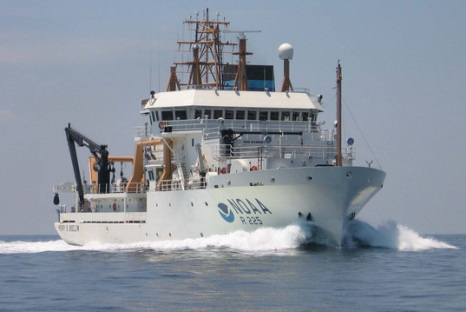
Fishermen Question Cod-Fishing Ban Data -one boat couldn’t catch any cod — and that boat happens to belong to the U.S. government.”
“I am certain that the science is wrong by a lot on this one,” said Vito Giacalone,,, David Goethel, captain of the Ellen Diane out of Hampton, New Hampshire, agreed. “I think there are a lot more cod than they are finding,” Goethel said. “I think we’re in the position we’re in basically because one boat couldn’t catch any cod — and that boat happens to belong to the U.S. government.” Video, and read the rest here 08:53
NEFMC Executive Director Tom Nies warns of deeper cod cuts if NOAA data holds
![]() The New England Fisheries Management Council expects to move to reduce the annual catch limit for Gulf of Maine cod in 2015 if an impending peer review process shows the dire conclusions of recently completed, if are accurate. “This is BS,” Vito Giacalone, the policy director for the Northeast Seafood Coalition, told the members of the NEFMC’s groundfish committee at the DoubleTree Hotel. “This is not the way it’s supposed to work.” <Read more here> (no need for 2nd page view) 22:29
The New England Fisheries Management Council expects to move to reduce the annual catch limit for Gulf of Maine cod in 2015 if an impending peer review process shows the dire conclusions of recently completed, if are accurate. “This is BS,” Vito Giacalone, the policy director for the Northeast Seafood Coalition, told the members of the NEFMC’s groundfish committee at the DoubleTree Hotel. “This is not the way it’s supposed to work.” <Read more here> (no need for 2nd page view) 22:29
That Peter Shelley. He’s got all the answers! – Why can’t the US be more like the Canadians?
You don’t usually hear much Canada envy from New England’s fishing industry. But last week, commercial fishermen Vito Giacalone, Richie Canastra, and Jimmy Odlin wrote to the Boston Globe to praise Canada’s haddock regulations, which they say have allowed Canadian fishermen to catch a far larger portion of their haddock quota—93 percent between 2004 and 2011, compared to United States fishermen’s 11 percent over the same period. These fishermen say United States haddock fishery regulations,, Read more here talkingfish 17:19
Crafting a Vision for the Future of Fisheries
 The federal law that mandates fishery management sets ten national standards that all fishing regulations must meet. But those standards are somewhat vague and sometimes even contradictory. listen@wcai
The federal law that mandates fishery management sets ten national standards that all fishing regulations must meet. But those standards are somewhat vague and sometimes even contradictory. listen@wcai
Wild Fisheries Are Sustainable by Law – Vito Giacalone, third-generation commercial fisherman based in Gloucester, Mass.
If your seafood is coming from a United States fishery, it is, by law, coming from a sustainable fishery. Read more
Vito Giacalone’s entry is one included with other’s. The comment’s at these blogs are interesting and revealing about how uninformed the general public is when it comes to harvesting seafood.
Editorial: Ex-AG’s report, hardly independent, needs further review
But it was clear from the start that the Preservation Fund, which paid for Harshbarger’s services, essentially had the probe and the report right under its own thumb. And instead of answering questions, the report itself — released thr ough selected public presentations last week, yet still protected under attorney-client privilege, as its own pages note — has unfortunately raised new ones. Read more here
ough selected public presentations last week, yet still protected under attorney-client privilege, as its own pages note — has unfortunately raised new ones. Read more here
UPDATED – Ex-AG Harshbarger report clears fisheries group, but raises questions By Richard Gaines
A 48-page report released today by a former state attorney general has found allegations of wrongdoing by Vito Giacalone in his role heading the Gloucester Fishing Community Preservation Fund “without merit” and with no “credible 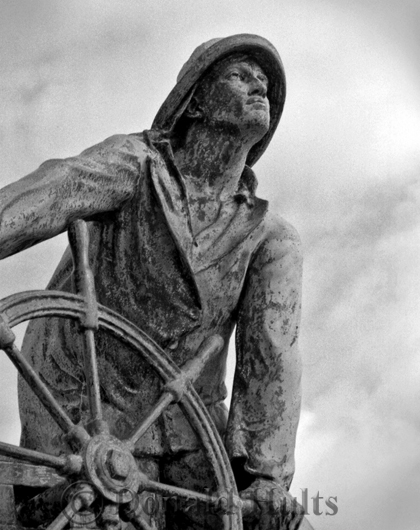 basis.”,,,,The investigation and report, filled with compliments and praise for Giacalone, in one place noting that his many admirers consider him a “genius” of foresight, was commissioned and financed by the preservation fund, for which Giacalone serves as president and executive director. Read more Todays Update January 30, 2013 Read more
basis.”,,,,The investigation and report, filled with compliments and praise for Giacalone, in one place noting that his many admirers consider him a “genius” of foresight, was commissioned and financed by the preservation fund, for which Giacalone serves as president and executive director. Read more Todays Update January 30, 2013 Read more






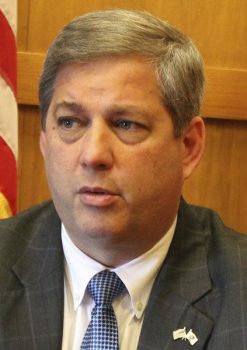
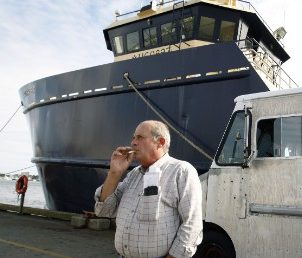
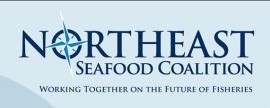
 Vito Giacalone, president of the Gloucester Fishing Community Preservation Fund, has been cleared of any wrongdoing by former attorney general L. Scott Harshbarger after a three-month investigation. But that does not mean Giacalone is happy with what he found in Harshbarger’s report. In fact, he said, he was astonished to read — for the first time — details of the allegations against him, such as charges of misappropriation of funds and exerting improper influence on fishermen.
Vito Giacalone, president of the Gloucester Fishing Community Preservation Fund, has been cleared of any wrongdoing by former attorney general L. Scott Harshbarger after a three-month investigation. But that does not mean Giacalone is happy with what he found in Harshbarger’s report. In fact, he said, he was astonished to read — for the first time — details of the allegations against him, such as charges of misappropriation of funds and exerting improper influence on fishermen. 



























